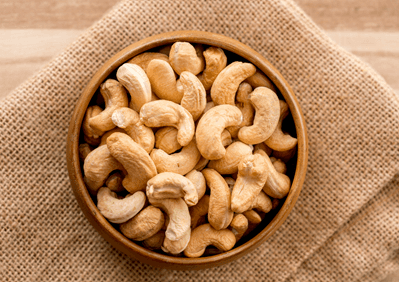The Ayurvedic Perspective on Kajutaka (Cashew nut) : History, Origin, and Classical Explanation
Its World Cashew Day. And we want to speak to you about the Ayurveda perspective, properties and its benefits. Read to know more
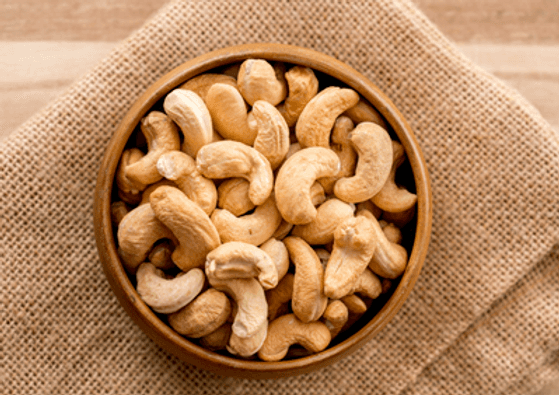
In Ayurveda, the comprehensive understanding of various natural ingredients underpins its rich therapeutic traditions. Among these is Kajutaka (commonly referred to as cashew nut), a potent and nutritious ingredient celebrated in recent Nighantu (Ayurvedic lexicons) for its myriad health benefits. This blog delves into the classical Ayurvedic explanation of Kajutaka, tracing its history, origin, qualities, and formulations that leverage its unique attributes for holistic well-being.
Kajutaka: History and Origin
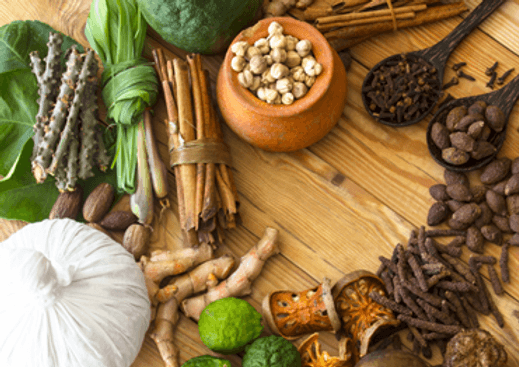
The cashew tree (Anacardium occidentale) is native to tropical regions, primarily Brazil, and was introduced to India by Portuguese traders in the 16th century. Over time, it is introduced in Ayurvedic pharmacopeia, where its kernel (nut) and other parts were analyzed for their therapeutic properties. Though Kajutaka does not feature prominently in classical Ayurvedic texts like Charaka Samhita or Sushruta Samhita due to its later introduction, modern Nighantu have documented its medicinal relevance based on its observed effects on the body and mind.
Ayurvedic Qualities of Kajutaka
According to Ayurveda, every substance has specific Dravyaguna (properties) that determine its effects on the body.
Rasa (Taste): Madhura (sweet), slightly Kashaya (astringent).
Guna (Quality): Guru (heavy), Snigdha (unctuous).
Veerya (Potency): Ushna (hot).
Vipaka (Post-digestive effect): Madhura (sweet).
These qualities render Kajutaka nourishing, strength-enhancing (Balya), and beneficial in managing Vata disorders due to its grounding and lubricating nature. Its warming potency also helps in balancing Kapha to some extent but may aggravate Pitta if consumed excessively.
Therapeutic Applications
Nourishment and Vitality:
Kajutaka is recognized for its Ojas-enhancing properties, making it an excellent choice for individuals experiencing fatigue or debility. Its rich nutritional profile, including healthy fats and minerals, supports tissue nourishment (Dhatu Poshana)
Digestive Health:
Though heavy to digest (Guru), moderate consumption can support healthy digestion due to its lubricating nature, which soothes dryness in the digestive tract
Reproductive Health:
Kajutaka is often recommended in formulations aimed at improving reproductive health and vitality due to its ability to strengthen Shukra Dhatu (reproductive tissue)
Neurological Benefits:
Its nourishing properties benefit the nervous system, helping to alleviate dryness and weakness caused by aggravated Vata.
Skin Health:
Topical preparations using Kajutaka oil or paste are known for their moisturizing and soothing properties, beneficial for dry and irritated skin
Recipes Using Kajutaka
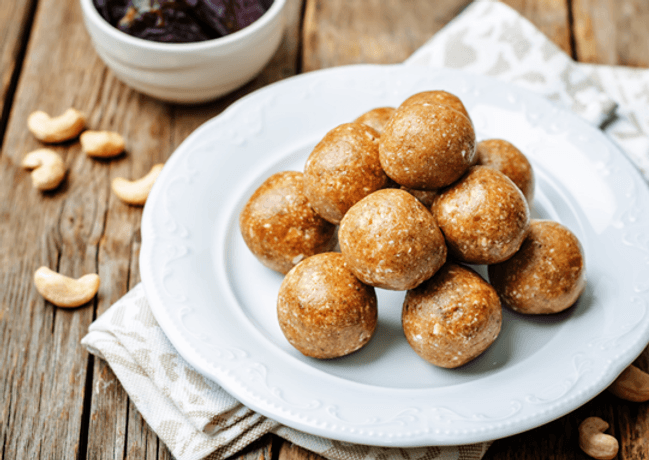
Kajutaka Laddoo:
A classical nourishing confection combining cashew nuts, ghee, and jaggery, prepared as a strength-enhancing recipe
Ojas-Boosting Paste:
Cashews blended with almonds, saffron, and milk form a rich paste used in rasayana therapy to rejuvenate the body
Vata-Pacifying Kheer:
Cashew nuts cooked with milk, cardamom, and a touch of ghee serve as a calming and grounding dessert to balance Vata
Modern Integration in Ayurveda
Kajutaka is a prime example of how Ayurveda adapts to incorporate newer ingredients while retaining its foundational principles. Modern Nighantu have highlighted its role in addressing lifestyle disorders, including fatigue, poor digestion, and skin ailments. Research corroborates its benefits, attributing these to its high magnesium, zinc, and antioxidant content, aligning with Ayurveda's holistic view of nourishment and health.
Precautions
While Kajutaka is beneficial, Ayurveda emphasizes moderation due to its Guru and Ushna properties. Excessive consumption can cause digestive discomfort and aggravate Pitta. It is also contraindicated for individuals prone to skin inflammation or excessive heat in the body.
Conclusion
Kajutaka represents the beauty of Ayurveda’s adaptability, blending ancient wisdom with modern insights. By understanding its properties and appropriate usage, it can be harnessed effectively in formulations and daily regimens to promote health and vitality. Whether consumed as a wholesome snack or integrated into traditional recipes, Kajutaka remains a testament to Ayurveda's timeless principles

International Environmental Education Day (January 26)
Jan 23, 2026
On International Environmental Education Day (January 26), we are reminded of a powerful truth: The future of our planet depends on what and how we teach today.
Read more

TDU VC Darshan Shankar pays tribute to Prof. Madhav Gadgil
Jan 9, 2026
Read more

Rethinking Periods: When Did Rest Become Restriction ?
Jan 8, 2026
Menstruation is one of the most natural processes of the female human body, yet it remains one of the most misunderstood. Across cultures-especially in India-it has been surrounded by silence, shame, and countless restrictions.
Read more

When a Baby Cries, the Body Speaks – Learning to Understand Your Child’s Silent Language
Jan 8, 2026
Children are often called a gift from God. When a baby is born, it feels like receiving a blessing
Read more

Plant Imperialists : The destructive case of Lantana camara
Jan 8, 2026
British gardening enthusiasts brought Lantana camara, a shrubby plant with spectacular inflorescence, to Kolkata around the 1800s. Surely, they enjoyed having colourful flowers around them and hoped to feel less homesick while they mass-occupied Indian land
Read more
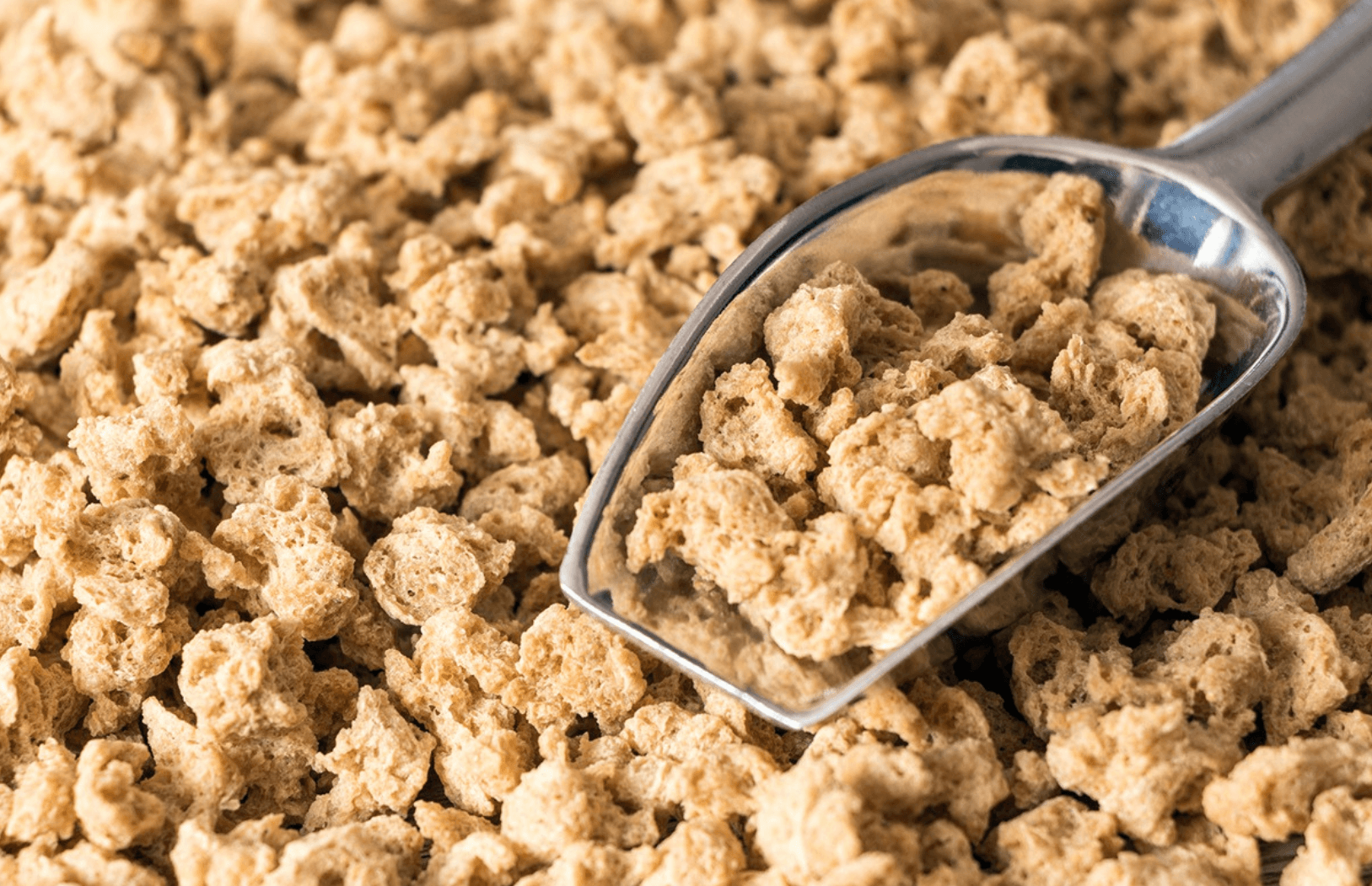
Are Mock Meats Just a Modern Fad ?
Jan 8, 2026
“Mock meats” or meat analogues are often dismissed as a bizarre trend by many and countless memes have spawned from the internet’s apparent disdain for mock meats and their consumers.
Read more


